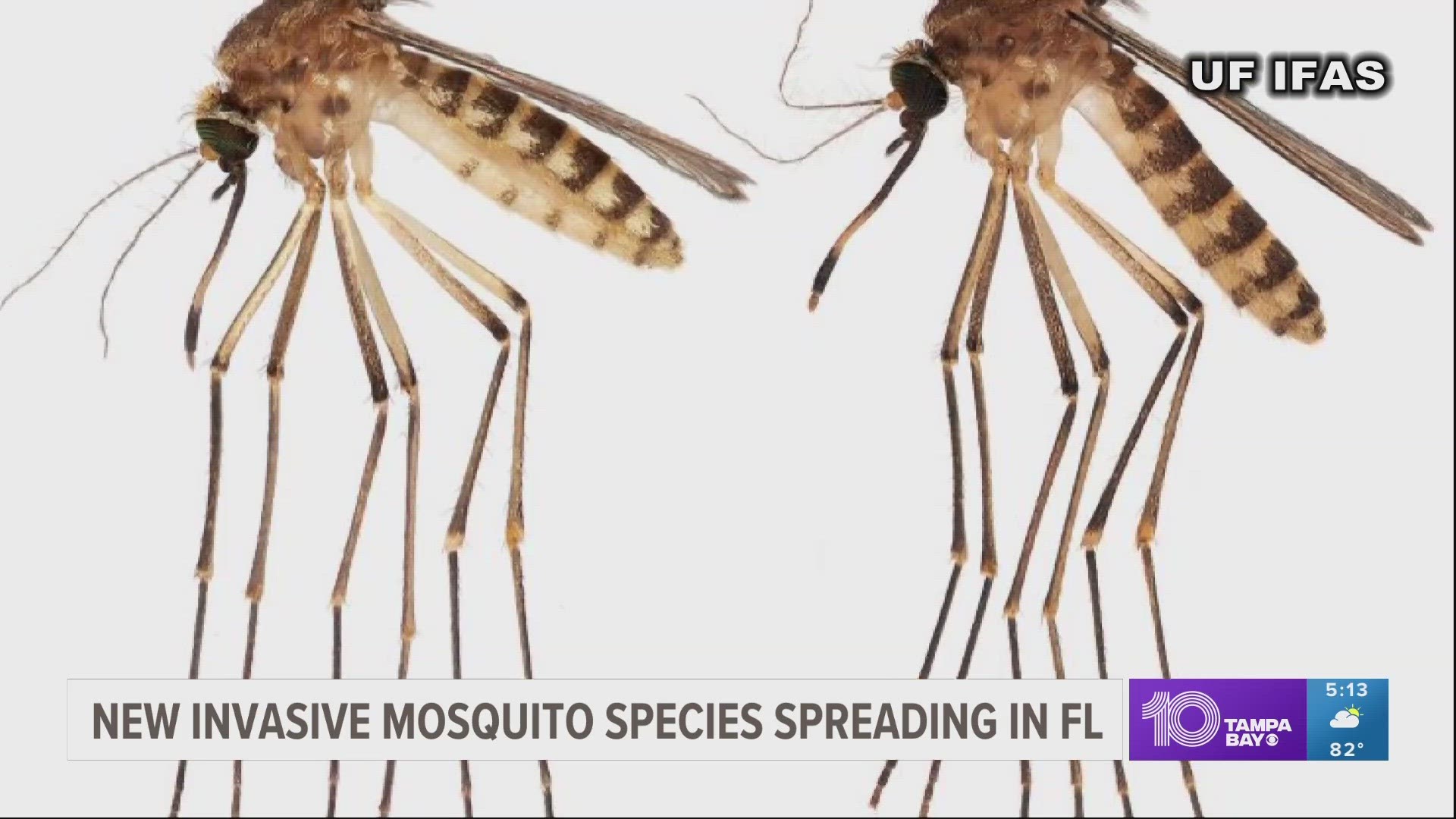TAMPA, Fla. — As the weather starts to warm up in our area again, you may have noticed the mosquitoes are back.
Unfortunately, there is yet another species to be concerned about.
“This certain type of mosquito is very new to our area,” David Fiess with Hillsborough Mosquito Management Services said.
A new, invasive species called Culex lactator has been spotted in Lee and Collier counties in Southwest Florida and Miami-Dade. It’s the sixth new, invasive mosquito species to be detected in our state in the past five years.
And it could make its way to the Tampa Bay area soon.
“It is possible,” Fiess said. “Once we are able to identify the type of mosquito we’re going to treat that mosquito on the way, especially if scientists find that it does carry disease, we’re gonna treat it the way that we treat any of our other disease carrying mosquitoes.”
The Culex lactator has a curved mouth and striped body — and, unfortunately — is the same type of mosquito that can transmit diseases like west Nile and St. Louis encephalitis.
“Vector is the term for those types of mosquitoes that carry disease,” said Fiess.
So far, those other disease-carrying mosquitoes have not spread Covid. Fiess says it’s too early to know what the mosquito species will or won’t spread to humans.
“What the concern is — this mosquito — the Culex lactator, is a dusk to dawn biter,” Fiess said. “So, if you are outdoors, you’re out on your back porch and this mosquito bites you, you’re not wearing that bug repellent and it bites you, if it is carrying a disease then it could spread to that human where they can fall ill.”
The Culex lactator mosquito may already be here, or our cooler weather could slow its progression to our region.
“Fortunately, we haven’t seen this mosquito yet in our traps,” Fiess said.
Mosquito control workers plan to fight this newest species the same way they combat 90 other mosquito species in Florida.
They also urge residents to do the same as they would with other mosquitoes by wearing longer sleeves and pants, using a repellent that contains the chemical Deet, and getting rid of any standing water around your area where the mosquitoes can breed.
“Weather and the environment has a lot to do with mosquito population,” Fiess added.

